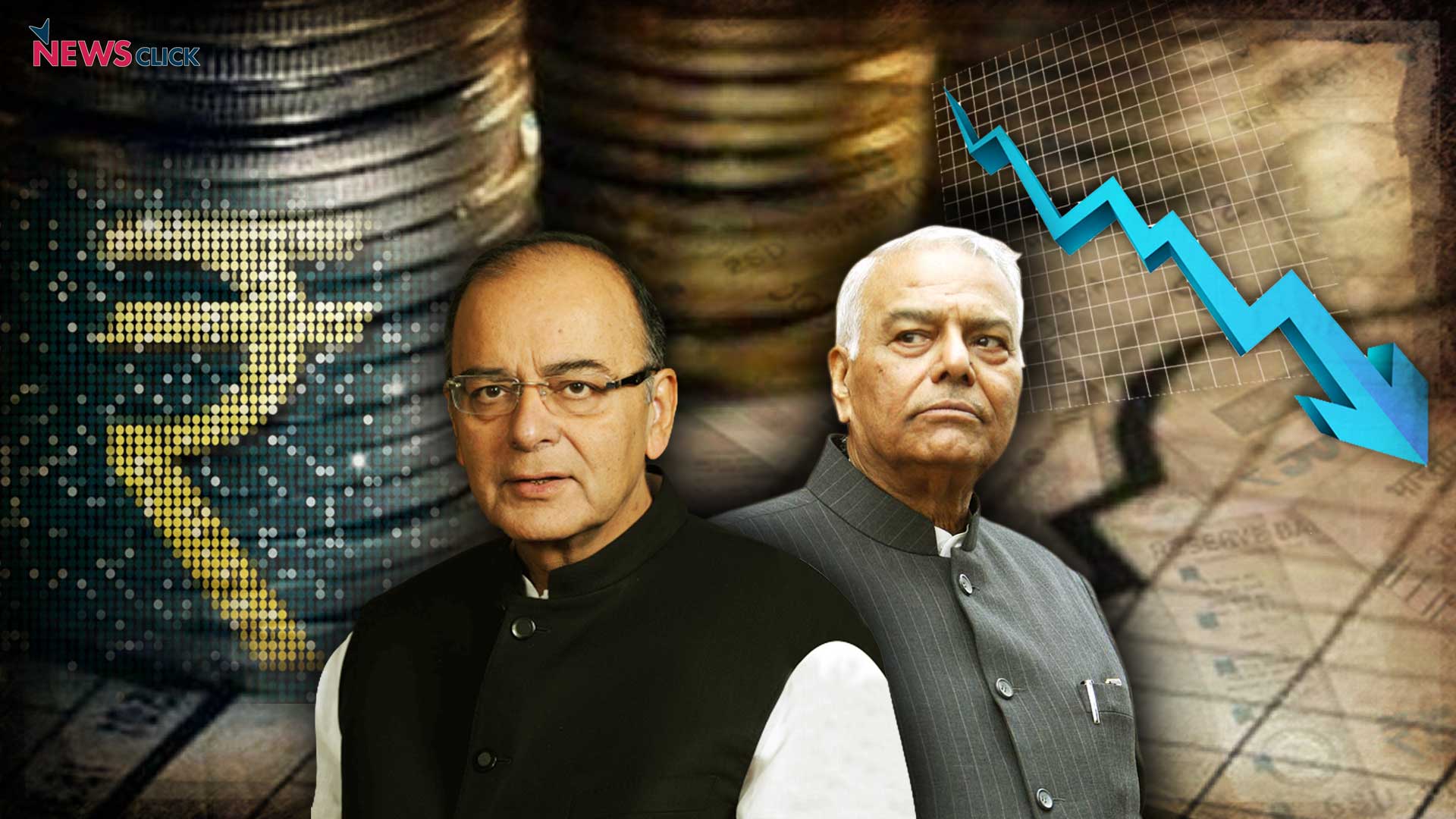“The prime minister claims that he has seen poverty from close quarters. His finance minister is working over-time to make sure that all Indians also see it from equally close quarters”, wrote Sinha in a hard-hitting opinion piece in The Indian Express.
Industry, agriculture, construction and services have slowed down and exports have dwindled, said Sinha. Demonetisation “has proved to be an unmitigated economic disaster”, while “a badly conceived and poorly implemented GST has played havoc with businesses and sunk many of them and countless millions have lost their jobs with hardly any new opportunities coming the way of the new entrants to the labour market.”
The methodology for the calculation of GDP had been changed by the BJP government in 2015, after which the growth rate recorded earlier increased statistically by more than 2 per cent. “So, according to the old method of calculation, the growth rate of 5.7 per cent is actually 3.7 per cent or less”, wrote Sinha.
BJP leader Subramanian Swamy has been continuously attacking Jaitley on Twitter, while former BJP minister Arun Shourie had also come out against the Finance Minister’s handling of the economy.
Yashwant Sinha sought to blame “the heavy burden of so many extra responsibilities” that Jaitley had to bear for the state of the economy.
But long-time observers point out that the problems run much deeper. Economist Prabhat Patnaik pointed out in a recent article that the looming recession in India is a product of three factors: the world crisis being imported into the domestic economy, the demonetisation measure whose effects continue to linger, and the Goods and Services Tax (GST) which has suddenly readjusted tax-burdens in a manner detrimental to small producers and traders.
Patnaik, who was the among the earliest to predict the recessionary impact of demonetisation, said in a recent interview that demonetisation added to a recessionary tendency that has existed for some time because of the world capitalist crisis. While it had appeared for a while that countries like India and China were insulated against the impact of the crisis, that is no longer the case. It is known for some time that the crisis was beginning to hit them.
Investment, net exports and government expenditure have all been showing symptoms of slowing down. Government expenditure increased recently due to the Pay Commission recommendations, but that kind of stimulus will not be there all the time and once its impact wanes, the recession would become much more pronounced. That is what is happening now, said Patnaik. Demonetisation has added to the recessionary tendency, as the informal sector in particular was adversely affected.
Share of Exports in GDP Touch 14-Year Low; GST Collections Down
Figures for the first quarter of the 2017-18 financial year bring out the sluggishness in export growth. While GDP growth in the April-June 2017 quarter – at 5.7 per cent – was more than two per cent lower than in the corresponding period last year, the share of exports in India’s GDP declined to a 14-year old low in the same quarter, Business Standard reported . Export growth in the quarter was a mere 1.2 per cent at constant prices. Export of goods and services accounted for 19.4 per cent of the GDP at constant prices in the April-June 2017 quarter, down from a little over a quarter of the GDP at its peak in 2013-14.
Bad news on the economy front extended to tax revenue as well, with GST collections slowing down in August. GST collections for the month were at Rs. 90,669 crore, down from Rs. 94,063 crore in July. This comes on top of the fact that the final figures for GST revenue are expected to be substantially lower due to refund claims of a massive Rs 65,000 crore in July.
Negative Outlook on Growth
Meanwhile Anil Manibhai Naik, outgoing Group Executive Chairman of Larsen & Toubro (L&T), has said in an interview with Business Standard that the economy is unlikely to revive for the next two years.
“India is in election mode. There are polls either in one state or the other, apart from general elections for the next two years. This will keep the top leadership of the government busy with campaigning and crucial governance will get neglected”, said Naik.
“Besides, the private sector is not in a position to invest, as many companies are dealing with their debt problem, while other large corporates that wanted to invest have completed their capital expenditure programme.”
Courtesy: Newsclick.in

